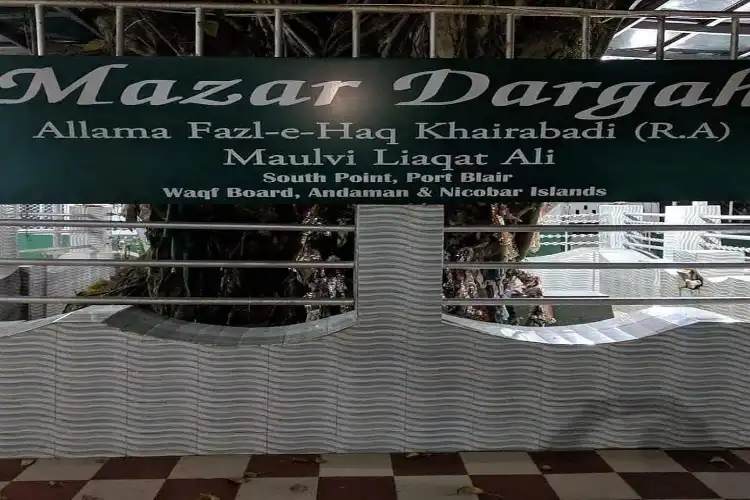
Saquib Salim
“It is, however, astonishing to note that in both major narratives (natioanlist & colonial) of the history of 1857, the life and works of Fazl-e Haq Khairabadi (1797 - 1861) gain no attention. He was one of the first political prisoners of colonial times, who not only resigned from the post of kutchery chief and is said to have issued a fatwa-e jihad against the British but also drafted the first constitution of Independent India based on the principles of democracy.” Prof. Jamal Malik of the University of Erfurt, Germany, wrote about Fazl-e Haq Khairabadi, an Islamic scholar and leader of the First War of India’s Independence in 1857.
At Port Blair, Andaman Islands, the Dargah of Mazar Baba is a place of veneration for both Hindus and Muslims. The memory of the man buried at this place is sacred for the people of the islands, who are descendants of the freedom fighters sent there during the freedom struggle. Allama Fazl-e Haq Khairabadi of Sitapur (U.P) rests here. Like his life mission in death too Khairabadi exists as a symbol of Hindu-Muslim unity,
Khairabadi belonged to a distinguished family of scholars; his father Fazl-e Imam was a renowned scholar, the famous Urdu poet Jaan Nisar Akhtar was his great-grandson, and Bollywood lyricist Javed Akhtar was his great-great grandson.
The British believed a major reason for Indians taking up arms against them was a Fatwa-e-Jihad (religious sanction for war) that said fighting against the British was a religious duty. Khairabadi was charged and prepared for executing the Fatwa. The court proceedings could not find much against him when he told the judges, “Yes that Fatwa is correct. It was prepared by me and I still stand by it.” Khairabadi was sent to Kalapani (the Andamans) in 1859 for fomenting the revolt against the British Empire.
Earlier, his role during the War of Independence was not limited to the Fatwa. He prepared a historic democratic constitution to run the country. Bahadur Shah Zafar was proclaimed the leader of the revolution by mutinous sepoys, common people, and princes. Like earlier monarchs he did not win them by the sword, rather people chose him as their leader. Fazl-e Haq Khairabadi, with the help of other scholars, prepared a constitution to run the liberated Indian Empire. The constitution was way ahead of its time and limited the power of Zafar to a constitutional monarch and an administrative court elected by the majority vote by the revolutionary army became the decision-making body.
The constitution said, “Election of the Court members should be in this manner: by the majority of votes two men should be elected from the infantry platoon, two from the cavalry troops, and two from the artillery”.
Like any modern constitution, it provided for amendments, “at any time according to the demand of the occasion right should be vested in the Court to make amendments by a majority of votes in this constitution”.
An interesting element of this constitution was that its first item was to ban cow slaughter. While the other portions of the constitution could not be implemented as Delhi was recaptured by the English, cow slaughter was completely banned and declared a penal offense.
Also Read: Ajmer Dargah: Jannatul Darwaza opens after two years
Khairabadi was later charged for “having instigated the Rebellion and to have kept it alive”. He attained martyrdom in the Andamans on 12 February 1861.
